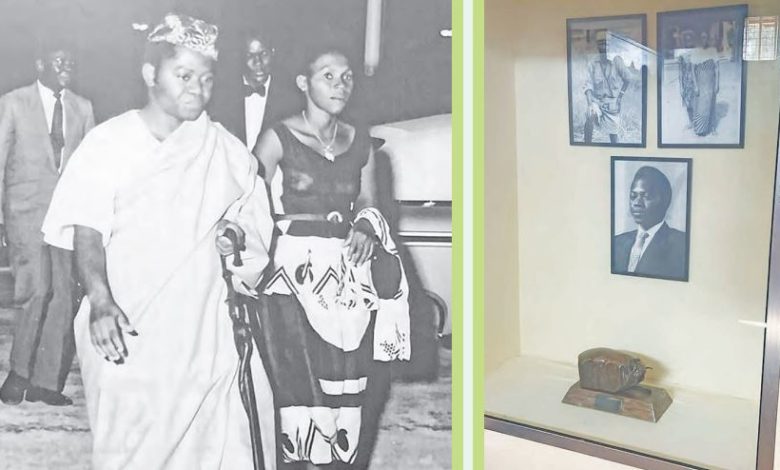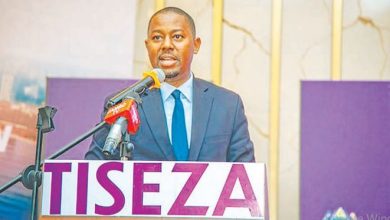Visit the land of TZ’s political warrior

ZANZIBAR: RASHIDI Mfaume Kawawa commonly referred to as the Lion of the Battlefield, was the second Prime Minister for Tanganyika, succeeding the Father of the Nation, Julius Nyerere.
He earned this title due to his fearless nature and remarkable courage in making difficult decisions, when necessary, always prioritising the interests of the public.
The late Kawawa was born on February 27, 1926, in Matepwende village, Namtumbo District, in the Ruvuma Region.
According to the official website of the Prime Minister’s Office, Kawawa began his education in 1935 at Tunduru Town Primary School in what was then the Lindi Region.
He later joined Dar es Salaam Central Middle School in 1942 and continued there until 1947, before proceeding to Tabora Boys’ School in 1951.
Before joining the struggle for independence, Kawawa was among the founders of the Government Employees’ Trade Union in 1955 and became its first Secretary General.
Through this role, he began mobilising workers to support Tanganyika’s independence efforts.
In February 1956, Kawawa resigned from his government and union positions, which at the time prohibited political involvement, in order to fully commit himself to the struggle for independence through the Tanganyika African National Union (TANU).
In 1957, he became a member of TANU’s Central Committee and, in 1960, he was appointed Vice-President of the party.
On January 22, 1962, Kawawa was appointed the second Prime Minister for Tanganyika after Julius Nyerere stepped down temporarily to focus on strengthening the party at the grassroots level.
Mr Kawawa held this position until December 8, 1962.
He was reappointed to the same position on March 2, 1972 and served until February 13, 1977, when Edward Sokoine took over.
Kawawa also served in several other government roles, including Minister for Local Government and Housing in the TANU government, Minister without Portfolio, VicePresident, Second Vice-President and Minister for Defence.
In this last role, he played a pivotal part in the formation of the Tanzania People’s Defence Force (JWTZ).
He was also responsible for founding the National Service (JKT) and for establishing strong foundational principles for both the JWTZ and JKT.
Beyond his ministerial duties, Kawawa served as a Member of Parliament for the Nachingwea and later Liwale constituencies between 1965 and 1985.
Within the ruling party, Chama Cha Mapinduzi (CCM), he held various key positions, including Secretary General in 1980 and ViceChairman in 1982.
He was also a permanent member of the CCM Central Committee. Rashidi Kawawa passed away on Thursday, December 31, 2009, at 3:20 am at Muhimbili National Hospital, at the age of 83.
He was buried on Saturday, January 2, 2010, at 1:00 pm at his home in Madale, Dar es Salaam.
His leadership left a lasting impact, particularly through his work in overseeing the Africanisation process and leading the implementation of Ujamaa Villages in 1975 as part of the Arusha Declaration.
He also founded Village Shops that aimed to make essential goods more accessible to the public.
His courageous decision-making continued to earn him the enduring title “Lion of the Battlefield.”
Despite his numerous contributions, a permanent national memorial to Kawawa had long been missing.
To address this, the government, through the National Museum of Tanzania, established the Kawawa Museum in the same way it has honoured Julius Nyerere with a museum in Magomeni, Dar es Salaam.
The Dr Rashidi Kawawa Museum is part of the National Museum of Tanzania network.
Its role is to conduct research, preserve and collect historical records and educate the public about Kawawa’s life and leadership.
Located in Songea District, Ruvuma Region, the museum was inaugurated on February 27, 2017, in a house where Kawawa is believed to have lived.
According to museum curator Ramadhani Mkumba, the museum houses exhibitions that include the actual residence of Dr Kawawa, along with his furniture, clothing, medals and other tools he used during his lifetime.
Among the medals on display are those awarded to him by the National Service (JKT), a Distinguished Public Service Medal awarded by President Ali Hassan Mwinyi, the Martin Luther King Award and a ZIFF Award recognising his contributions to film acting.
Mkumba describes the museum as a representation of Kawawa’s personal and political journey, stating that it showcases the life of the second most significant political figure in Tanzania after Mwalimu Nyerere.
The museum also includes a film projector he used to watch movies, reflecting his involvement in film in addition to politics.
A notable feature of the museum is an underground bunker that draws the attention of many visitors.
Historical accounts suggest that the bunker was used not only for security but also for hosting secret meetings during the liberation struggles in Southern Africa.
Inside the museum, there is also a library where students and researchers can explore historical records on Kawawa and other key figures in Tanzania’s history.
Regarding future development, Mkumba notes that there are several investment opportunities, such as developing recreational gardens and children’s play areas to attract more visitors.
He also suggests the potential for a private investor to establish a film and music studio to honour Kawawa’s contributions to the creative arts.
The government, through the National Museum of Tanzania, also plans to enhance the museum through landscape improvements and the addition of more personal items u





